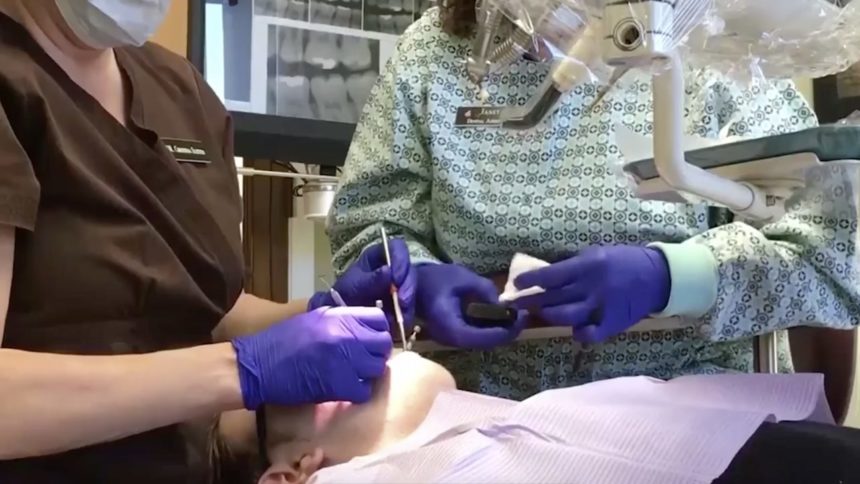Colorado Springs dentist talks Halloween candy: How bad is it really?

Now that Halloween is over, it's time to sit back and snack on the sweet rewards of trick-or-treating. But eating all that candy takes a toll on your teeth.
We spoke with a local Colorado Springs dental practice to learn more about the effects these sugary confections have on our health.
"Some of the potential consequences are just, longevity of cavity exposure and the sugar exposure and how it damages the teeth," said Blue Springs Family Dentist Dr. Mike Coughlin.
We all know too much candy gives you cavities, but can one night really do that much damage?
"It takes years for these things to develop, so a lot of times the things that we're doing today is realized a year or two years down the road," said Dr. Coughlin.
It might be unrealistic to expect kids to give up Halloween completely, so it's important to practice good oral hygiene.
"Anytime you're going to have any sugar, just group it with a meal, brush immediately after. The frequency is a big component. You don't want to keep snacking over and over again. That has a much bigger dental impact than just having your dessert, brushing, and calling it a night," said Dr. Coughlin.
And when it comes to gorging on the sweets, pick the lesser evils. Coughlin says anything that's "sticky" or "tacky" will stay on your teeth longer.
"Taffy, Butterfingers will get engrained in those grooves and pits of your teeth," he said. "So if you're not brushing immediately after you eat them then all those sugars are staying right in the pits and grooves of those teeth and it has a much more pronounced effect on how likely you are to have a cavity."
Blue Springs Family Dentistry is hosting a candy buy back. They will buy back your candy for a dollar a pound for up to five pounds. All the candy will be sent to troops overseas. You can participate until Friday.
